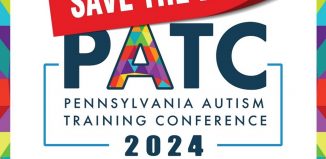ODP Guidance for 24-Hour Annual Training Requirements in Training Year 2023
ODP Announcement 22-111 reminds providers that any regulation that requires completion of 24 hours of training related to job skills and knowledge each year, as well as any regulations that require the provision of training that encompasses the six areas required by regulation, are in full effect. Providers must comply with these requirements.
The Office of Developmental Programs (ODP) recognizes that providers may still be struggling to meet the 24-hour training requirements due to the prevalence of infectious or communicable diseases and continued workforce insufficiency; as such, the following guidance will be applied for training years that end in calendar year 2023:
- Any training provided that is specific to the mitigation of risk related to infectious and communicable disease may be counted towards the 24-hour training requirements required by regulation. Such training includes, but is not necessarily limited to:
- Social distancing;
- Personal protective equipment use (donning, doffing, fit testing);
- Contact tracing and notifications;
- Mask, face covering, or face shield use;
- Cleaning and disinfection practices;
- Screening for signs and symptoms of infectious disease;
- Reporting procedures related to signs and symptoms of infectious disease;
- Notification processes due to infectious reportable infectious disease;
- Characteristics and methods of transmission of infectious disease;
- COVID-19 transmission risk by pre-symptomatic and asymptomatic individuals;
- Safe and healthy work practices and infection control measures;
- Supporting individuals to engage in mask wearing, social distancing, etc.;
- Vaccine safety, efficacy, and access;
- Set up and use of technology in providing remote service delivery or supporting individuals to connect with friends and family;
- Remote monitoring;
- Use of the Supports Coordinator Check-In for Well-Being Tool;
- Engaging in meaningful conversations during check-ins;
- SC Individual transition guide;
- Transition discussion and resources video; and
- Reviewing Centers for Disease Control (CDC) and state or local guidelines and trends.
- Any component of a department-approved Medication Administration Course.
Licensed Providers may self-assess regulatory compliance using ODP’s Inspection Scoresheets or Provider Self-Assessment Forms. If a provider identifies areas of noncompliance while completing a self-assessment, provided those noncompliance areas have been corrected, licensing staff will not identify those areas as noncompliant. Violations identified and subsequently corrected through the self-assessment process will not be cited on a Licensing Inspection Summary.
Please contact the appropriate ODP Regional Program Office or the Department’s Regulatory Administration Unit with any questions about this guidance.











